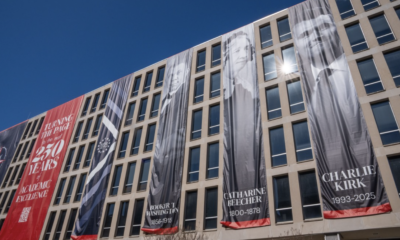Serena Williams’ GLP-1 Weight Loss Drug Deal Sparks Debate on Body Image and Celebrity Influence
To see Serena Williams promoting injections for weight loss, critics argue, marks a turning point where even the most accomplished women appear trapped by society’s obsession with shrinking their bodies.
Serena Williams has always been a game-changer, both on and off the tennis court. But her latest move—signing on as global ambassador for Ro, a telehealth company prescribing GLP-1 weight-loss drugs—has ignited one of the most polarizing cultural debates of the year.
The 23-time Grand Slam champion told Women’s Health that despite years of training at the highest level, eating clean, and even reaching the finals of Wimbledon and the US Open, her body “still wouldn’t lose weight.” Serena Williams described GLP-1 treatments as the “medicine my body needed,” framing her partnership as an honest step toward normalizing medical support for weight struggles.
Ro, which also counts her husband Alexis Ohanian as a board member, is one of several companies offering direct-to-patient GLP-1 programs. These medications—branded under names such as Ozempic, Wegovy, and Zepbound—were originally designed for diabetes but have gained popularity as weight-loss solutions.
Why This Feels Like a Cultural Turning Point
While some have praised Serena Williams’ openness about her weight loss journey as breaking the stigma, others see her endorsement as deeply troubling. For decades, Williams’ muscular, powerful physique challenged traditional beauty ideals and inspired millions of women to embrace strength over thinness.
To now see Serena Williams promoting injections for weight loss, critics argue, marks a turning point where even the most accomplished women appear trapped by society’s obsession with shrinking their bodies.
From Tennis Star to Drake’s Ex : Serena Williams Breaks Silence on Super Bowl Cameo
Commentators worry that the message to fans—especially young women—is that no amount of success, strength, or discipline is enough if you don’t meet the ideals of thinness. As one columnist put it: “If Serena Williams couldn’t ‘achieve’ thinness without drugs, what hope do the rest of us have?”

Serena Williams Endorsing Ro (GLP-1 Weight Loss Injections)
Risks Behind the Trend
The rise of celebrity-backed GLP-1 campaigns like Serena Williams backing Ro underscores a larger issue: the medicalization of beauty standards. These drugs can indeed support weight loss, but they also carry risks, including nausea, muscle loss, gallbladder issues, and uncertain long-term effects for non-diabetic users.
Health experts caution that unless paired with deeper changes in body image and nutrition habits, GLP-1s may intensify cycles of obsession with food and weight rather than resolve them.
Meanwhile, the glamourized marketing of injections—complete with glossy photoshoots of Serena self-administering the drug—risks normalizing them as lifestyle accessories rather than serious medical treatments.
View this post on Instagram
Serena Williams’ decision to endorse Ro also can’t be separated from the unique scrutiny she has faced as a Black woman in sports and media. For years, her body has been dissected under the lenses of both racism and sexism—pressures that may have influenced her choice.
But the broader cultural impact remains troubling: a future where weight-loss injections are marketed as casually as makeup, and where thinness becomes not just aspirational but expected.
The challenge now lies in balancing respect for individual choices with honest conversations about what drives them—and what message they convey to generations growing up under the influence of celebrity culture.













































Pingback: Serena Williams Buys Into Toronto Tempo — Drake Cloud Follows
Pingback: Jonah Hill's Shocking Photos from His New Movie ‘Cut Off’